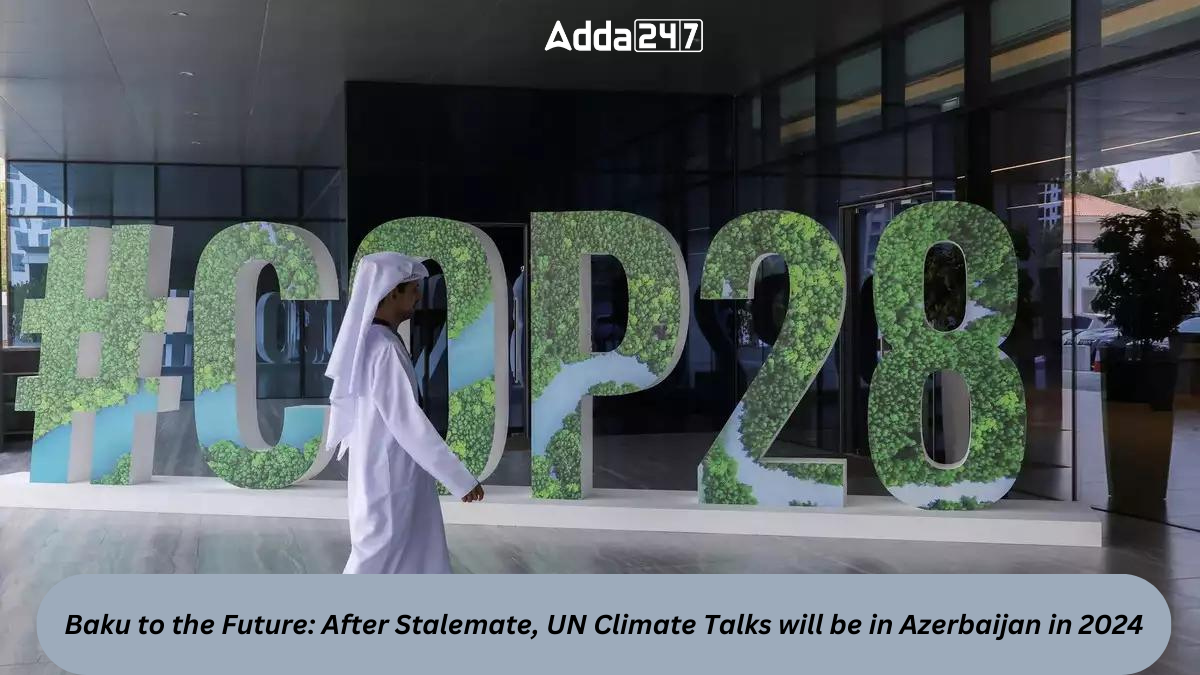In a surprising turn of events, the long-standing stand-off between Azerbaijan and Armenia has found an unexpected resolution, setting the stage for Baku, Azerbaijan, to host the United Nations Climate Change Conference (COP29) in 2024. The resolution emerged as part of a prisoner swap settlement, underscoring the intricate relationship between geopolitical dynamics and global efforts to combat climate change.
A City Steeped in History
Baku, known for being home to one of the world’s first oil fields developed over 1,200 years ago, will become the focal point for climate discussions in 2024. This choice is particularly noteworthy as it follows the COP28 held in Glasgow, a city pivotal to the industrial revolution and the birthplace of the modern steam engine.
The Irony of Oil Powerhouses Hosting Climate Talks
The decision to have an oil powerhouse host climate talks for two consecutive years raises eyebrows, considering the primary focus of these conferences is often on reducing and eliminating fossil fuels. This development prompts reflections on the irony of nations heavily reliant on oil taking center stage in global climate discussions.
COP in Nations with Restrictions on Free Speech
Adding another layer of complexity, Baku’s selection as the COP29 host extends the trend of the United Nations holding its showcase conference in nations with restrictions on free speech. The potential challenges this presents to civil engagement and protest dynamics during the conference raises concerns among observers.
Positive Intentions and Climate Leadership
Climate talks historian Jonna Depledge emphasizes that hosting COP29 in Baku is not inherently problematic. She argues that nations with significant oil resources stepping up as climate leaders is a positive development, provided they can demonstrate a commitment to sustainable practices. Ani Dasgupta, head of the World Resources Institute, applauds the move but acknowledges the uncertainty surrounding Azerbaijan’s approach to climate leadership.
A Unique Blend of Climate and Peace
The resolution of the Azerbaijan-Armenia conflict adds an unusual dimension to the COP29 host selection. The joint announcement by the governments of America and Azerbaijan, framing the decision as a “good gesture” in support of peace, intertwines geopolitical relations with climate diplomacy. Analysts highlight the unprecedented aspect of climate change becoming a part of peace negotiations, emphasizing the broader implications for global stability.
Climate Change and Peace
Ani Dasgupta notes the interconnectedness of climate change and peace, citing instances where environmental factors like droughts and extreme weather have contributed to conflicts. The decision to intertwine climate talks with peace negotiations offers a unique opportunity to address both environmental and geopolitical challenges simultaneously.
Unprecedented Timing and Last-Minute Decision
Unlike the COP28 in Glasgow, where the location was planned well in advance, Baku’s selection comes just 11 months before the negotiations are set to begin. The last-minute nature of the decision reflects the complexity of geopolitical negotiations and raise questions about the logistical preparedness for hosting such a significant global event.
Important Questions Related to Exams
Q1. What unexpected event led to Baku hosting COP29?
Sol. The resolution of the Azerbaijan-Armenia conflict through a prisoner swap settlement.
Q2. Why is Baku’s choice as COP29 host noteworthy?
Sol. Baki is home to one of the world’s first oil fields, adding historical significance to the climate discussions.
Q3. What irony is highlighted by having oil powerhouse nations host consecutive climate talks?
Sol. The irony lies in nations reliant on oil taking center stage in discussions focused on reducing fossil fuels.
Q4. What adds complexity to Baku hosting COP29?
Sol. Baku’s selection extends the trend of hosting in nations with restrictions on free speech, raising concerns about civil engineering.




 Which Country is the Largest Producer of...
Which Country is the Largest Producer of...
 Which Country is the Largest Olives Prod...
Which Country is the Largest Olives Prod...
 Which City is known as the Apple Capital...
Which City is known as the Apple Capital...








